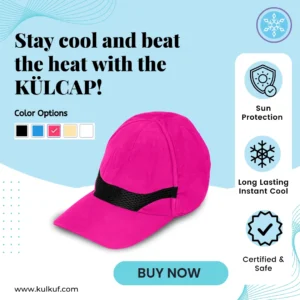How to Stop Hot Flashes Fast
Key Takeaways:
Hot flashes can be a challenging symptom to manage. But there are several ways to stop hot flashes fast:
Read more: How to Stop Hot Flashes Fast- Dress in layers and stay cool by drinking cold fluids and taking cool showers.
- Avoid triggers such as alcohol and caffeine.
- Engage in regular exercises, such as brisk walking.
- Yoga, meditation and deep breathing are some relaxation techniques.
Hot flashes are sudden feelings of warmth usually accompanied by sweating, rapid heartbeat, and flushing of the face and neck. When these hot flashes occur at night, they resemble night sweats. Various factors, including hormonal changes, medications, and certain medical conditions, can cause them.
Have a look at some tips to help you stop hot flashes fast:
Dress in Layers
Dressing in layers is a helpful strategy for managing hot flashes.
- When you dress in layers, you can easily remove clothing as you feel hot and put it back on when you cool down. It allows you to maintain a comfortable body temperature and avoid overheating.
- Consider wearing lightweight, breathable fabrics such as cotton or linen, which can help wick away moisture and keep you cool.
- Avoiding tight-fitting clothing is also a good idea, as this can trap heat and worsen hot flashes.
Dressing in layers lets you stay comfortable and manage your hot flashes more effectively.
Stay Cool
Staying cool is an effective strategy for managing hot flashes. The following tips will help you stay cool:
- Use air conditioning: If you have air conditioning, use it to keep your home cool. Use a portable fan to help circulate the air.
- Open windows: If the weather is cool enough, you can open windows to let in the fresh air and cool down your home.
- Stay hydrated: By drinking plenty of water, you can regulate your body temperature and stay hydrated.
Use cooling products
Using cooling products is a helpful strategy for managing hot flashes. Here are some cooling products that you may find helpful:
- Cooling towels: These are designed to stay cool for several hours. Wet them with water and wring them out before using them.
- Cooling gel packs: These small packs can be frozen or refrigerated and placed on your skin to help reduce your body temperature.
- Cooling pillows: These are designed to stay cool and help regulate your body temperature as you sleep.
- Cooling mattress toppers: These are toppers designed to regulate your body temperature during sleep. They can be made from gel-infused memory foam or breathable fabrics.
- Portable fans: These are small fans that you can carry to help cool you down when you’re feeling hot.
- Ice packs help cool down specific body parts like your neck or wrists.
Avoid Triggers
Avoiding triggers is an essential strategy for managing hot flashes. Here are some common triggers to avoid:
- Spicy foods: Spicy foods can trigger hot flashes in some people, so avoiding or limiting your intake is a good idea.
- Alcohol: Alcohol can dilate blood vessels and increase body temperature, triggering hot flashes. It’s best to limit your alcohol intake or avoid it altogether.
- Caffeine: Caffeine can increase your heart rate and trigger hot flashes. Limiting your intake of coffee, tea, and other caffeinated beverages is best.
- Smoking: Smoking can increase your heart rate and trigger hot flashes. It’s best to quit smoking or avoid exposure to secondhand smoke.
- Stress: Stress can trigger hot flashes in some people. Try to manage your stress levels through relaxation techniques such as meditation, deep breathing or yoga.
Exercise for hot flashes
Exercise is an effective strategy for managing hot flashes. Here are some tips for exercising:
- Engage in moderate-intensity exercise: Doing moderate-intensity exercises, such as brisk walking or cycling, can help regulate your body temperature and reduce the frequency and severity of hot flashes.
- Exercise regularly: Try to exercise for at least 30 minutes a day or five days a week. Regular exercise can aid in regulating your body’s temperature and alleviate the intensity of hot flashes.
- Choose the right time to exercise: Try to exercise during the cooler excellent parts of the day, such as the early morning or late evening, to avoid overheating.
- Stay hydrated: You should prefer drinking plenty of water before and after exercise. It helps you to regulate your body temperature.
- Wear suitable clothing: Wear lightweight, breathable clothing that allows your skin to breathe and wicks away moisture.
- Take breaks: If you start to feel hot or dizzy during exercise, take a break and rest until you feel better.
Practice Relaxation Techniques
Practising relaxation techniques is an effective strategy for managing hot flashes. Here are some methods that you may find helpful:
- Deep breathing – Deep breathing helps you to relax and reduce stress. Take slow and deep breaths through your nose and out through your mouth. Focus on your breathing and try to clear your mind.
- Mindfulness meditation involves sitting or lying down and focusing on your breath or a specific word or phrase. If your mind wanders, slowly bring your attention to your breath or word.
- Yoga is a gentle exercise that can help reduce stress and promote relaxation. Many yoga poses can help regulate your body temperature and reduce the severity of hot flashes.
- Progressive muscle relaxation: Progressive muscle relaxation involves tensing and relaxing different muscle groups. Start at your feet and work up your body, pulling each muscle group for a few seconds before releasing the tension.
- Guided imagery involves visualizing a calming or peaceful scene in your mind. Close your eyes and imagine a place or situation that makes you feel calm and relaxed.
Consider Medication
If lifestyle changes and natural remedies do not effectively manage your hot flashes, your doctor may suggest medication as a treatment option. Here are some medications commonly used to control hot flashes:
- Hormone therapy involves taking progesterone and estrone to replace the hormones your body can no longer produce. Hormone therapy can effectively reduce the severity and frequency of hot flashes, but it is unsuitable for everyone. So, it’s better to get proper medical advice.
- Antidepressants: Some antidepressants, such as selective serotonin reuptake inhibitors (SSRIs) and serotonin-norepinephrine reuptake inhibitors (SNRIs), can effectively reduce the frequency of hot flashes.
- Gabapentin: While commonly used for treating seizures and nerve pain, gabapentin can also alleviate hot flashes.
- Clonidine: Clonidine treats high blood pressure but can also effectively reduce hot flashes.
Hot flashes can be managed effectively with lifestyle changes, natural remedies, and medication. Dressing in layers, staying cool, using cooling products, avoiding triggers, exercising regularly, and practising relaxation techniques can help stop hot flashes quickly. Working with your doctor to determine the best treatment plan for you is crucial. Remember, every person’s experience with hot flashes is unique, so it may take experimentation to find what works best for you.
To know more about this miracle wristband, visit: https://kulkuf.com/









